For October PATTERN Reads we talked with Indianapolis writer Julia Whitehead about some of her favorite books. Whitehead is an author, mother, former Marine, former elementary school teacher in Thailand, and Founder and CEO of the Kurt Vonnegut Museum and Library. Her community involvement advocates for free speech, social justice, and removing barriers for kids and women. Whitehead’s work with the Vonnegut Library benefits students, veterans, teachers, and general readers, locally and globally. Buy her book, Breaking Down Vonnegut.
The Kurt Vonnegut Museum and Library is finishing their annual Banned Books Week. Check out Whitehead’s list of favorite banned books below.
Slaughterhouse-Five By Kurt Vonnegut
Kurt Vonnegut’s Slaughterhouse-Five tops my list of favorite banned books. Vonnegut lived a lifetime coping with the horrors of his war experience at the hands of the Nazis. He devoted twenty years to writing this novel.
Often banned for vulgarity, sex, profanity, comments mistakenly deemed as anti-Christian, and other reasons, the book was once burned in a school furnace by the Drake, North Dakota School Board. In a response letter, Vonnegut included a line I often quote: “If you are an American, you must allow all ideas to circulate freely in your community, not merely your own.”
In my book Breaking Down Vonnegut, I present new information about Slaughterhouse-Five, among other stories and aspects of Vonnegut’s life. Another reason I love the book is because Vonnegut uses the relationship between a porn star and the protagonist, not to shame them, but to show a passionate, sensual friendship.
Some critics have concluded that Vonnegut’s depiction of the relationship is superficial because it only presents the lust phase but Vonnegut is trying to tell us more here. Deep kindness and affection do not have to be fleeting. When we start trying to control our mates, we are rendering a disservice to them and ourselves. Unconditional love does not have to be just between parents and children. Loving kindness must always be present for a relationship to sustain the “lust” phase. Very few people make the effort to do that.
Black Boy by Richard Wright
I am hard-pressed to find a book with an opening chapter than leads to more heart-pounding angst than Richard Wright’s Black Boy. Wright captures me with a series of avoidable tragedies that befall this small child. Despite the boy’s occasional poor choices, I felt fiercely protective of this character, who suffers from generational violence.
I first read the book in the early 1990s as an undergraduate at the University of South Carolina in my African American Literature class. The class helped me to be a better-informed adult and enriched my love of good writing. I picked the book up again earlier this year as I had decided to reread several titles from my youth. Black Boy addresses issues of hunger, racism, bias, lack of educational opportunities, violence within a family and in communities, and more. While I am not a Black man raised by former slaves in the early 1900s, I could relate to hurts expressed by the author through the protagonist, though his hurts were much worse than anything I experienced.
Wright said the book was partially biographical though he never explained which parts were fact and which were fiction. He wrote, “Whenever my environment failed to support or nourish me, I had clutched at books.” Reading was a great escape in my childhood as well. Reading has been scientifically proven to increase a person’s empathy.
This character and author knew education is holy. Those are my favorite kinds of people.
A Tree Grows in Brooklyn by Betty Smith
Betty Smith’s protagonist is a little girl with an alcoholic father. She contends with financial worries, class struggles, and, like Richard Wright, Smith focuses on the value of education (and a recognition that people—even teachers—favor wealthier students). While I did not have an alcoholic parent, as the youngest of six kids, I witnessed alcoholism and experienced its accompanying violence and the financial setbacks related to a family member satisfying a substance addiction. The girl’s father himself, through an important action that carries the plot forward, changes the destiny of the main character. This focal point of the story challenges readers to evaluate their own behavior.
Though some banned the book, the U.S. government did not find it objectionable and provided it, among others, to soldiers during World War II. The empathy that this volume provides caused some soldiers to change alcoholic and other behaviors that had made lives more challenging for their loved ones. The book gave me hope.
The Diary of Anne Frank
I read The Diary of Anne Frank as a child in school in the 1980s. Its very existence is a miracle. It’s about a young Jewish girl whose family went into hiding to escape capture by the Nazis. The book delivers an important lesson in history but also serves as a catalyst for discussion about the Holocaust especially now when anti-Semitism is at an all-time high for the last half-century. In various classes, teachers discussed why Hitler hated the Jews but I have yet to hear any teachers explain why it was wrong for Hitler to hate the Jews. Until we educate ourselves on what it means to be Jewish (or Muslim or Buddhist or Humanist or…) and the good things at the heart of faiths, we will continue to remain silent when others attempt to justify murder of innocent people because of their religion. The book has become even more important to me all these years later because I converted to Judaism in 2019. I am grateful to live in a city where we have organizations the include the Center for Inter-Faith Cooperation that unite people of different faiths to bring out the best in each other while keeping our own traditions and values.
On the global level we have another favorite organization, the United Nations. While countries are not always “united,” the concept of this organization is essential to our quest for global unity. Just as we value free speech, we must remain united with people of all faiths who also value freedom of religion. In addition to this diary, the book and film Gentleman’s Agreement is a good place to start to help yourself with an antidote to antisemitic behavior.
Fahrenheit 451 by Ray Bradbury
Fahrenheit 451 is a quick, exciting read that uses action to emphasize its philosophical offerings. Bradbury is a master of “show it, don’t say it.” The book is about a dystopian future where firemen burn books so that people won’t be exposed to controversial ideas. One fireman begins to question his actions. He goes rogue and brings the reader along on his noble adventure. There is a Bradbury Museum in Indianapolis on the campus of IUPUI. The book was banned for a host of reasons that include the fact that the Bible was burned. That is one of the most poignant parts of the story as readers of any faith or no faith can relate to the important task of helping each other on this journey to maintain freedom of expression.
And Tango Makes Three by Justin Richardson and Peter Parnell
The children’s book And Tango Makes Three is a delight. A true story, two male penguins, a pair bond, at Central Park Zoo in New York City became fathers to a hatchling female penguin named Tango. It’s visually beautiful thanks to illustrator Henry Cole. Conservatives have banned this book out of fear that sharing this story about same-sex relationships in nature will demonstrate to children that it is normal to find all kinds of pairing in the world of animal/humans. Bravo to all involved in this triumph.
Brown Girl Dreaming by Jacqueline Woodson
I discussed earlier Betty Smith’s coming-of-age book in Brooklyn. The delightfully talented Jacqueline Woodson also wrote about her years in Brooklyn and, earlier in segregated South Carolina in her biographical verse novel Brown Girl Dreaming. Winner of a National Book Award for Young People’s Literature, among other prizes, Woodson said the book, “reflects the joy of finding my voice through writing stories.” The stories in Brown Girl Dreaming reveal painful truths relayed through her unique voice: “Then I let the stories live inside my head, again and again until the real world fades back into cricket lullabies and my own dreams.” Woodson participates in our programs at the Vonnegut Library for which we are grateful. We’ve worked together on behalf of Indiana Women’s Prison and on our annual graduation parties with Lewis Black. When she received a MacArthur Foundation “genius grant,” in 2020, she was among the few queer moms ever to receive the fellowship.
She confronts topics of sexual identity, social class, gender, incarceration, slavery, and segregation. I love this book not just because of its lessons and relevance to many people including the young but also because of its beautiful language: “I want to catch words one day. I want to hold them then blow gently, watch them float right out of my hands.”
Lady Chatterley’s Lover by D.H. Lawrence
Trapped in a passionless marriage, Lady Chatterley’s discovery of erotic passion led to Lawrence’s perfect description of a female orgasm, which then and forever put this book on the banned list. Cooped up with my kids as a single mom during Covid quarantine, I longed to escape the endless work-at-home hours, laundry, and the home restaurant I operated for my two teenage boys. Lady Chatterley’s steamy affair with the gamekeeper was just the sort of distraction I needed. First published in private in 1928 in France and then 1932 in England, it wasn’t fully available to the British or American audiences for another nearly thirty years. No wonder we’re so far behind the French, Germans, Danes, and others when it comes to good sexual health. Notice that I didn’t say “good sex” but “good sexual health”–mind, body, spirit. As Lawrence wrote: “Body without mind is brutish; mind without body… is running away from our double being.” It makes you live longer!
Johnny Got His Gun by Dalton Trumbo
Published and lauded in 1939, this anti-war novel wasn’t banned, or was it? Johnny Got His Gun is about a soldier. To say he is disabled is an understatement. Nothing remains but his mind. All of his limbs and torso are gone. The reader is a companion to his thoughts on good memories with his family, friends, and his girl, his efforts to communicate with caregivers, his hope for death, and his desire to be showcased around the country so others can see one outcome of war. The book is haunting, heartbreaking, effective. It’s been suggested that the U.S. government banned the book. Librarians say it’s banned anytime we are at war. Trumbo was pressured. Trumbo was pressured to censor his own book during World War II because of the letters he received from those fighting the war. If we pressure someone to stop making their book available, isn’t that also banning? Trumbo encouraged his publisher to stop printing until many years later. During those years, Trumbo suffered having been blacklisted as a communist sympathizer (the “Hollywood 10”) during the McCarthy Era yet he secretly scripted some of Hollywood’s most memorable films including Spartacus, Exodus, Roman Holiday, and others.
Examining his life is an examination of our country’s foundation: “The First Amendment to the United States Constitution prevents the government from making laws that regulate an establishment of religion, or that prohibit the free exercise of religion, or abridge the freedom of speech, the freedom of the press, the freedom of assembly, or the right to petition the government for redress of grievances.” We celebrate Banned Books Week at the Vonnegut Library every year to showcase those who bravely defend this important freedom.
The Satanic Verses by Salman Rushdie
As I write this, Salman Rushdie is recovering from a violent attack in August 2022 by an extremist. His book The Satanic Verses should make everyone’s list of favorite banned books because it is a testament to an individual’s and society’s desire for freedom of expression. It’s important to note that it is a work of fiction, yet the government of Iran issued a fatwa calling for the execution of Rushdie on February 14th, 1989 because of what he wrote in this book, which is written as magical realism, somewhere between fantasy and reality. Just a few weeks after Rushdie went into hiding, Kurt Vonnegut and more than 700 other writers presented a statement in the New York Times that stated “We, the undersigned, in so far as we defend the right to freedom of opinion and expression as embodied in the Universal Declaration of Human Rights, declare that we also are involved in the publication.
We are involved whether we approve the contents of the book or not.” The statement calls upon global citizens to create a tolerant world, free of censorship, intimidation, and violence. It calls on world leaders to repudiate threats made to Rushdie and to take “firm action to ensure that these threats are withdrawn.” They were not. These sentiments are why the Kurt Vonnegut Museum and Library works for an America without book censorship. This is why we give away thousands of books each year and stand up to Moms for Liberty and other groups who fear books. In 2019, Salman Rushdie spoke at an event for the Vonnegut Library on the importance of Vonnegut. The donors at this event contributed the first 1/3 of the funds we needed to buy our building.
Writers of banned books live forever because of our public humanities spaces. Read a banned book. You’ll be glad you did.

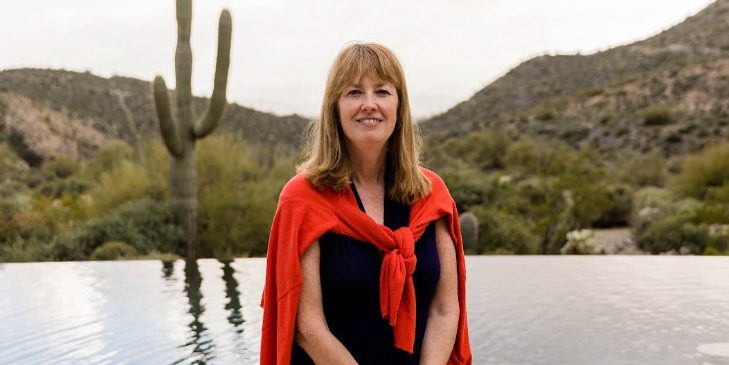

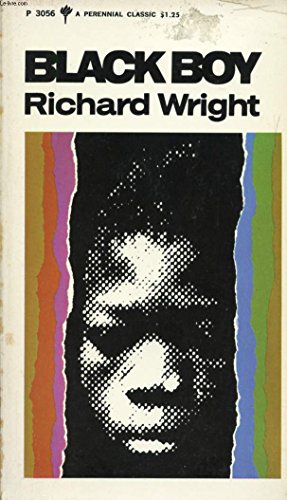


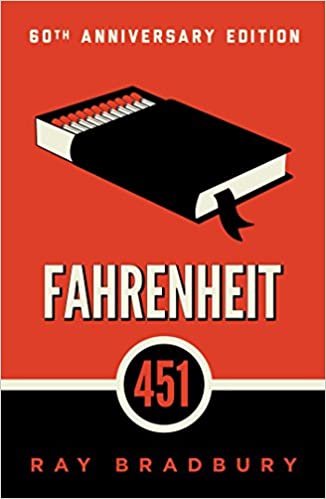
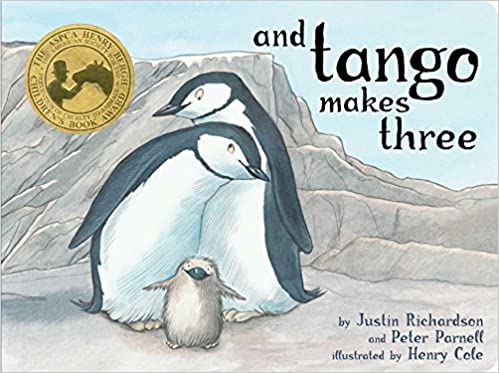
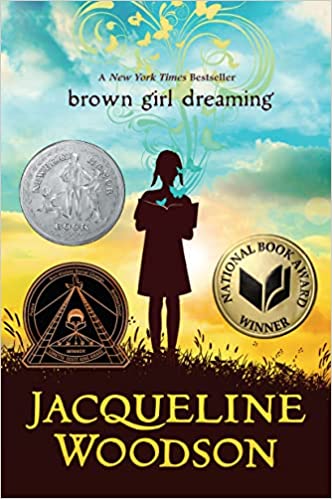





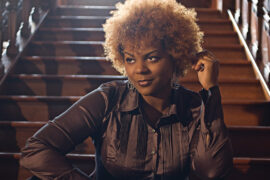
Thanks for that. I am cheered that some, at least, find the beauty in books that disturb others. I own a collection of Vonnegut books (including “Slaughterhouse Five”) and have read “Anne Frank” and “Fahrenheit 451”. The others are on my “yet to read” list. One of my favourite quotations – that I found in the front of Chaim Potok’s “The Promise” – is: “If the book we are reading does not wake us up, as with a fist hammering on our skull, why then do we read it? Good God, we we would also be happy if we had no books, and such books as make us happy we could, if need be, write ourselves, But what we must have are those books which come upon us like ill-fortune, and distress us deeply, like the death of one we love better than ourselves, like suicide. A book must be an ice-axe to break the sea frozen inside us.” Franz Kafka.